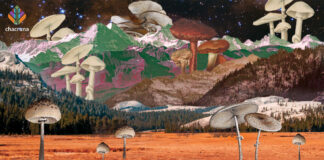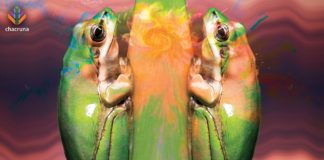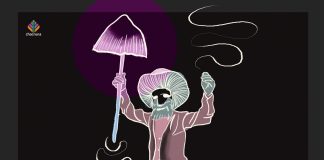DIY Mycology in a Psychedelic World
This essay explores the relatonship between the recent boom in DIY (do-it-yourself) mushroom growing and the use of psychedelic mushrooms as both these topics become more mainstream.
Science Has Shown Me the Way Ahead with Psychedelics
In this personal account, Brazilian journalist Marcelo Leite talks about his shift from being primarily a science journalist to focusing on psychedelics. He speaks on his personal psychedelic experiences, the history of psychedelics in Brazil, his educational journey over the years, the overlap between Brazilian practice and Western science surrounding psychedelics, and how all of these things have shaped his journalistic practice.
Michael Pollan Plunges into Mescaline, Opium, and Caffeine in His New...
Brazilian journalist Marcelo Leite reviews Michael Pollan’s takes on mescaline, opium, and caffeine in Pollan’s new book How To Change Your Mind. Leite explores histories, controversies, and experiences surrounding these psychoactive plants stemming from Pollan’s experiences while also taking into account broader historical and contemporary issues.
Navigating a Double-Edged Sword: Toward Psychedelic Apprenticeship
This article explores the idea of the psychedelic experience as a “double-edged sword” in the way that although spiritual revelations and insights can aid in bettering mental health, these revelations and insights can also lead to further damaging the psychology of an individual. The authors explore potential causes and solutions to this dilemma.
How I Joined the Secret SSRI Circles of 1985
Through this narrative fictional account, Andrew Penn offers a literary image of underground pharmaceutical practice by telling the story of the SSRI circles of 1985 in New York City. He compares this with the growing popularity of psychedelics in the mainstream and excitement for clinical trials while at the same time underground practice still exists.
The Challenges of Kambô Conservation
In this article, Filipe Ribeiro covers the conservation challenges surrounding kambô. The kambô frog’s secretions are used in traditional practice among several Indigenous peoples in the southwest Amazon. With the growing global demand for kambô, some have suggested that the Indigenous approach to collecting the frog’s secretions is harmful to the frog. Ribeiro urges the West to not rush to hasty and superficial judgments regarding traditional practices.
Is Peyote the same as mescaline?: A Cultural History
The history of transforming peyote into mescaline is a story of separating plants from people. It is a story of colonialism.
Understanding the History of Rastafari and the Sacramental Use of Ganja...
Jasmine Virdi interviews Jahlani Niaah, Rastafari scholar and community member, about the little-known and often misunderstood Rastafari movement. Within the psychedelic renaissance, the sacramental use of ganja by Rastafari is often overlooked. In this interview, Niaah provides a historical overview of the origins of the Rastafari movement, explaining certain key elements of Rastafari praxis, and about the sacramental use of ganja among the Rastafari.
Who’s in Charge of Psilocybin?
Alex Beiner critiques a paper called Psilocybin: From Serendipity to Credibility in the journal ‘Frontiers in Psychiatry’ which was written by two psychiatrists, James Rucker and Allan Young, about the use of psilocybin by legal retreats. He centers the philosophical question of “who has the right control access to psilocybin?“, provides counter arguments to the current power structures, and offers an opportunity to create a truly unique, multidisciplinary and ground-breaking model of healing.
A Century of Mescaline
This paper provides a history of the process in which mescaline was synthesized, and 100 years of research involving it. Among these researchers were Ernst Späth, Arthur Heffter, Humphrey Osmond, Aldous Huxley, and Alexander ‘Sasha’ Shulgin. Today, there has been movement for researchers to conduct clinical studies with mescaline through the FDA.














